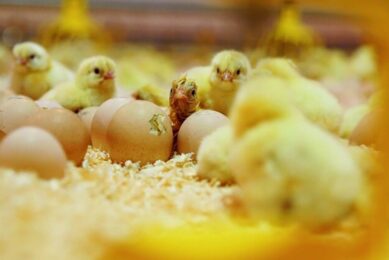Tyson Foods posts loss on meat oversupply
Tyson Foods Inc., the world’s largest meat processor, has posted a loss for its fiscal second quarter due to an oversupply that led to lower prices, but it said the impact of the glut should diminish later in the year.
Tyson Foods and other meat companies, such as Smithfield Foods Inc and Pilgrim’s Pride Corp , warned recently that an abundance of meat has hurt earnings. The glut has been blamed in part on bird flu overseas hurting US chicken exports and export bans on US beef lasting longer than anticipated.
Springdale, Arkansas-based Tyson, which produces beef, pork, and chicken, reported a quarterly loss of $127 million, compared with earnings of $76 million a year ago.
“This quarter’s results reflect the depressed markets and the oversupply of all proteins. The beef segment suffered from low capacity utilisation and declining boxed beef prices. The negative effect of high live cattle prices and lower sales prices was made worse by interruptions in export markets,” Chief Executive John Tyson said in a statement.
Tyson’s revenue for the period ended April 1 fell 1.8 percent to $6.25 billion, compared with $6.36 billion a year ago.
The beef unit, Tyson’s largest, had an operating loss of $188 million for the quarter, compared with a year-ago loss of $19 million.
“Despite the poor results the company sounded more optimistic about easing protein supply in general, and about chicken margin trends,” said Pablo Zuanic, JP Morgan food analyst, in a research report. “Recent data seems to imply leg quarter prices have bottomed.”
Leg quarters are a popular export item and industry analysts have said prices for those had been pressured by the recent slowdown in exports due to bird flu overseas.
Tyson’s chicken sector had a quarterly operating profit of $9 million, compared with $143 million a year ago.
Also, the U.S. chicken industry appears to be slowing production, with output projected to be “flat to slightly down in the coming months,” Bond said.
Higher fuel and energy costs also hurt the company’s results, with those costs $44 million higher during the quarter compared with the year-ago period, he said.
The large meat supply and higher operating costs affected the pork segment, which had an operating profit of $9 million, compared with $19 million a year ago, the company said.
“The impact of the oversupply of protein is expected to diminish in the second half of the year. We expect the third and fourth quarters to be better as demand improves, but they still will be difficult,” said Tyson.
Join 31,000+ subscribers
Subscribe to our newsletter to stay updated about all the need-to-know content in the poultry sector, three times a week. Beheer
Beheer








 WP Admin
WP Admin  Bewerk bericht
Bewerk bericht